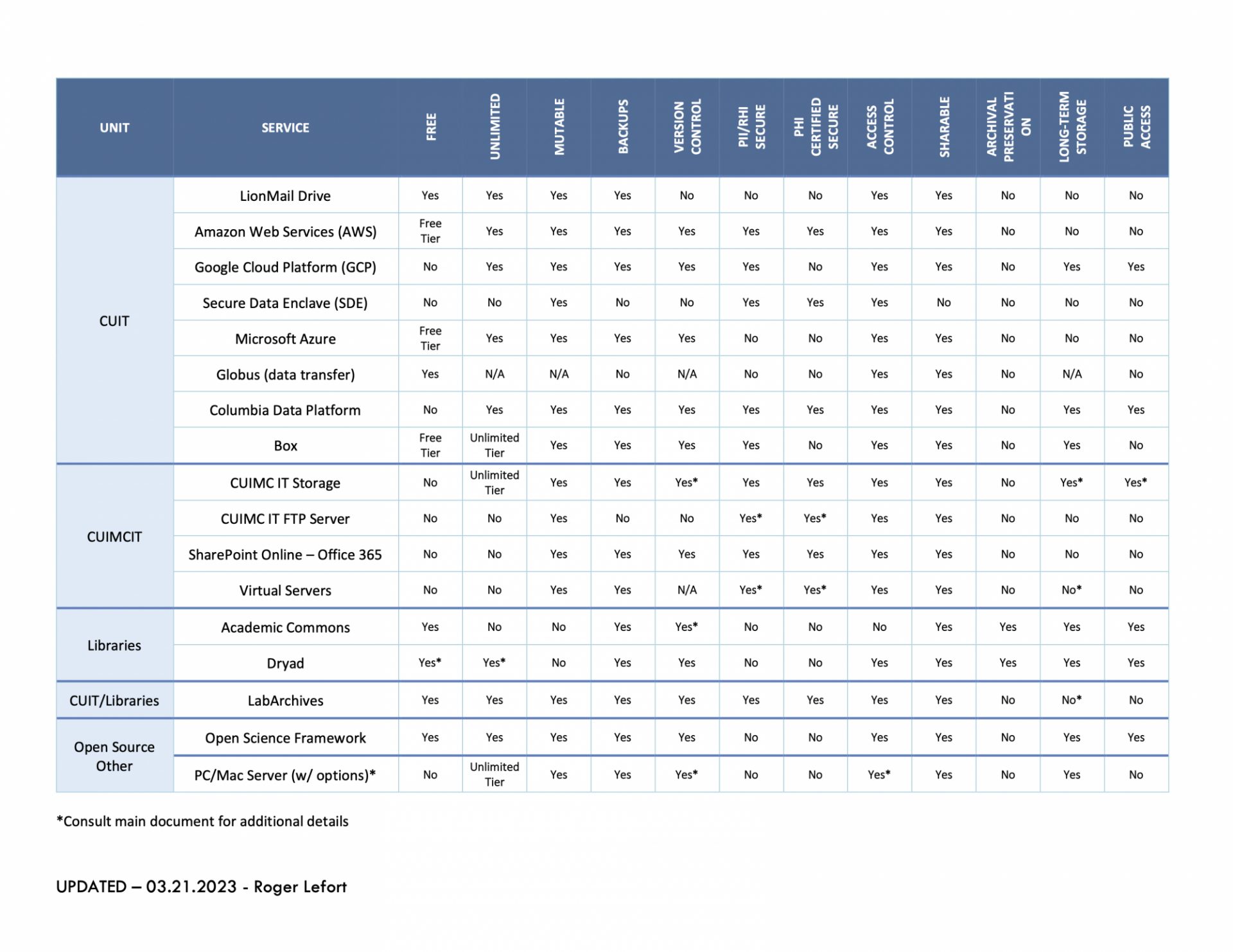Sharing Data and Finding the Right Repository
Several funders and publishers require data be made publically accessible. Apart from these requirements researchers may choose to make all or part of their data widely available.
If you are required to share your data as part of funding agreement, please visit the Public Access Mandates Webpage.
Columbia University Guidance on Retention of Research Data states Principal Investigators are responsible for identifying, collecting, managing, and retaining Research Data as custodian for the University.
There are a number of ways to maintain and share your data in order to make it available to the scholarly community and the broader public. Check out the links and resources below to find more information about managing and sharing data, and to find a repository that is right for you and your research.


